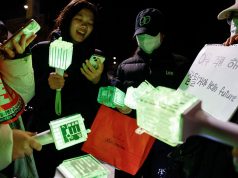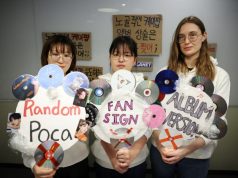
Korina Sanchez has featured multiple K-pop groups and the Korean craze in the Philippines on her “Rated K” program but her recent comment that their “songs cannot even be understood by Filipinos” has caused an uproar among fans.
Sanchez commented on Facebook about the costs of concerts and the fanaticism of young fans after she attended the concert of Wanna One at the SM Mall of Asia Arena last September 1.
Filipino K-pop fans criticized her post which was initially edited but later on deleted.
A Twitter user pointed out that despite Sanchez’s derisive comment, she has used the K-pop stars’ popularity to her advantage by featuring them in her “Rated K” show since 2013, when “Gangnam Style” first went viral worldwide.
Korina Sanchez features KPOP concerts, invite K idols as guests and the ridicule KPOP fans for being fans.
A round of applause for a hypocrite.
— Cherubel (@osumaybel) September 2, 2018
In February 2013, the television personality featured and interviewed Psy.
In April 2018, she featured EXO as they held their “ElyXiOn” concert in Manila. Sanchez even referred to them as the “Kings of Pop.”
In July 2018, she featured Super Junior and had an exclusive interview with them. She also gave out tickets to the concert through social media.
In August 2018, she featured MOMOLAND and even mentioned that one of them looked like a local celebrity.
Just this month, she featured GFriend and Wanna One in her television show. Like her previous K-Pop coverage, she also gave out tickets through social media.
The K-pop phenomenon
According to a study released by market research firm TNS Global, Korean culture is one of the top three cultures Filipinos are attracted to. Others are drawn to American and Japanese culture.
In terms of the K-Pop phenomenon, Professor Patrick Capili of Ateneo de Manila University said that belonging to fandoms is a kind of a personal experience.
“A fan’s affinity with her idol is an avenue for her to explore her creative side,” he noted through a report.
The report continued: “Fandom can create a bond among young people who see themselves as ‘outsiders’ in everyday life, but who now have found others who share the same interest.”









